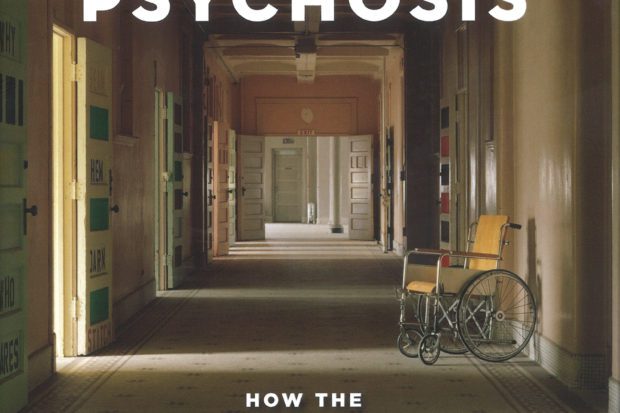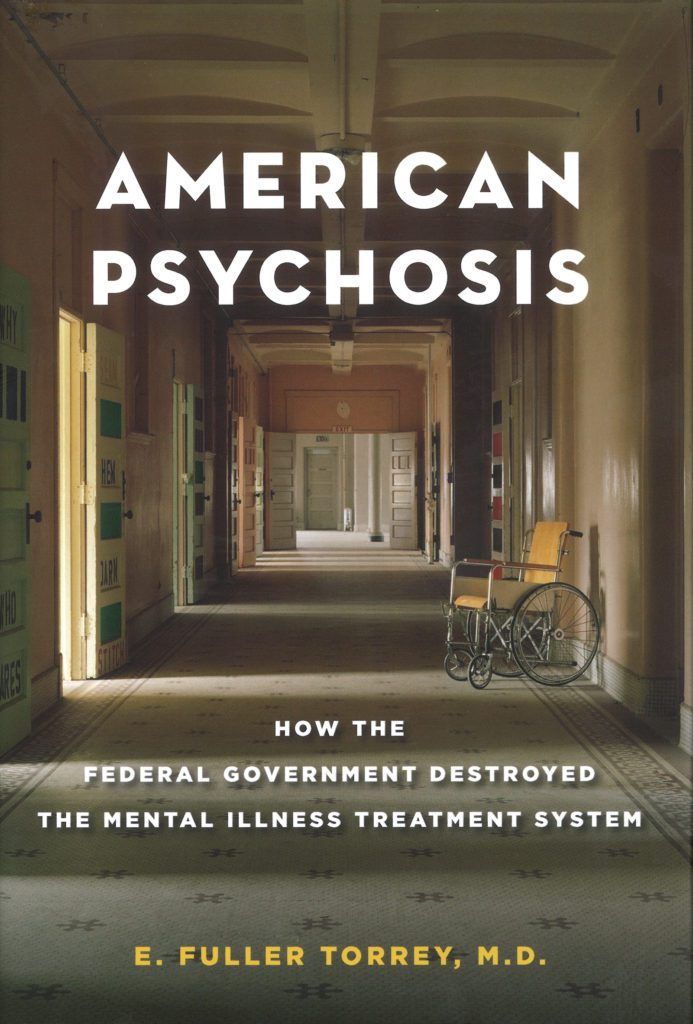
There are so many ways we are confused about mental illness. What is going on in the minds of people whose words and behavior don’t make sense? Where can a family turn for help when a loved one shows signs of serious mental illness? Why are so many mentally ill persons homeless? What would a well-functioning mental health system be like, if California were to develop one?
Fresno has an organization to help families learn about and deal with mental illness in a loved one. NAMI Fresno, a chapter of the National Alliance on Mental Illness, provides classes and discussion groups for families, recently on Zoom during Covid. NAMI also advocates for improved treatment programs for persons in need, whom they call “consumers” or “neighbors.”
Psychiatrist Dr. E. Fuller Torrey documents a shocking political history that explains the lack of a functional mental health treatment system in California today. His 2014 book, American Psychosis, has a title meant to imply that it is America that is nuts, lacking a mental health solution.
Back in 1959, about 37,000 persons in the state lived in mental hospitals. However, the public was beginning to learn that the conditions there were poor, and the length of hospital stays was often excessive. Soon a trend for shutting down these hospitals developed.

In 1963, President John Kennedy signed the Community Mental Health Act. This was intended to make the federal government responsible for psychiatric patients. The plan was to create a network of community mental health centers for consumers to receive care in their local region outside of a hospital. However, shortly after the president signed the act, he was assassinated. When new programs developed in the following years, the funding generally disappeared quickly.
As governor of California, Ronald Reagan played a hand in the gradual sale of state mental hospitals. The notion was publicized that the cost of community mental health centers would come from these sales and from the federal government. By the 1980s, a combination of corruption and confusion as to who was responsible for setting up new programs led to the programs being torpedoed altogether.
Nowadays, a brief hospitalization to evaluate a person in a mental health crisis, called a 5150, is common in local hospitals. During this three-day stay, a consumer might start on appropriate medication and on sharing his/her life stresses with mental health professionals. This should be the beginning of a comprehensive individualized treatment program. That is often not the case.
All of us need to change our thinking and attitudes to begin to solve the problems currently faced by distressed families, tired mental health caregivers and overwhelmed police. What if we were to understand a mental illness to be a brain disorder to be faced just as we deal with cancer or diabetes? Could the families and consumers involved be freed of blame and stigma? Could mental health workers be incentivized to promote community programs instead of just their own careers?
Everyone benefits when we use therapeutic treatment rather than imprisonment for nonviolent psychiatric patients. Everyone would feel relieved not to see more and more homeless mentally ill persons on the street. And the creativity and skills of recovering individuals could be contributing to our community.
The author recalls with deep sadness a consultation decades ago with the mother of a young mentally ill son with whom she had lost contact. From friends of his whom he had known before his illness, she learned that he was sleeping in the parks of two different cities near the Bay Area.
She kept in contact with these friends, hoping to bring about a reunion with him so that she could bring him to treatment. Instead, some months later, he was found dead in his sleeping bag on the banks of the Sacramento River due to exposure.
Serious depression, schizophrenia and bipolar disorder are conditions that can indeed be helped with the medications and psychotherapies that are known today. This process could take considerable time and should not be subject to shortcuts. And at each step, the consumer needs respect for his/her dignity, secure housing and an ongoing support system.
Two particularly challenging situations for treatment are persons who have a dual diagnosis (both mental illness and addiction) and those who need help but do not believe that they are mentally ill. A recent law, the CARE (Community Assistance, Recovery and Empowerment) Act of 2023 aims to consider the needs of these individuals by including a budget for treatment, housing and ongoing support.
The act includes a voluntary Care Court that can offer this program to consumers, sometimes as a diversion from a charge that might land them in jail. An agreement is reached in Care Court and both the client and the county services are held responsible for carrying it out. In principle, the consumer’s individual rights are defended by an attorney during this process.
Fresno County is not among the five counties in California that have adopted this law, but its inclusion is anticipated before the end of 2024.
There is some controversy about whether the rights of the consumer are fully respected when a judge is making decisions. If the offer of services is handled in a fully collaborative manner, with built-in protections, it could be a success for some of our most difficult situations.
Since the blows against the mental health system that took place in the 1960s, California has been struggling to provide adequate care for mental illness. Now, new funding and a new structure could result in an improved system. This is the hope of families that include people with serious mental health issues.
Accessing Support
NAMI Fresno can be reached by calling 559-224-2469 or visiting namifresno.org. For more information about Spanish-speaking groups, call NAMI California in Sacramento at 916-567-0163 or visit namica.org.
